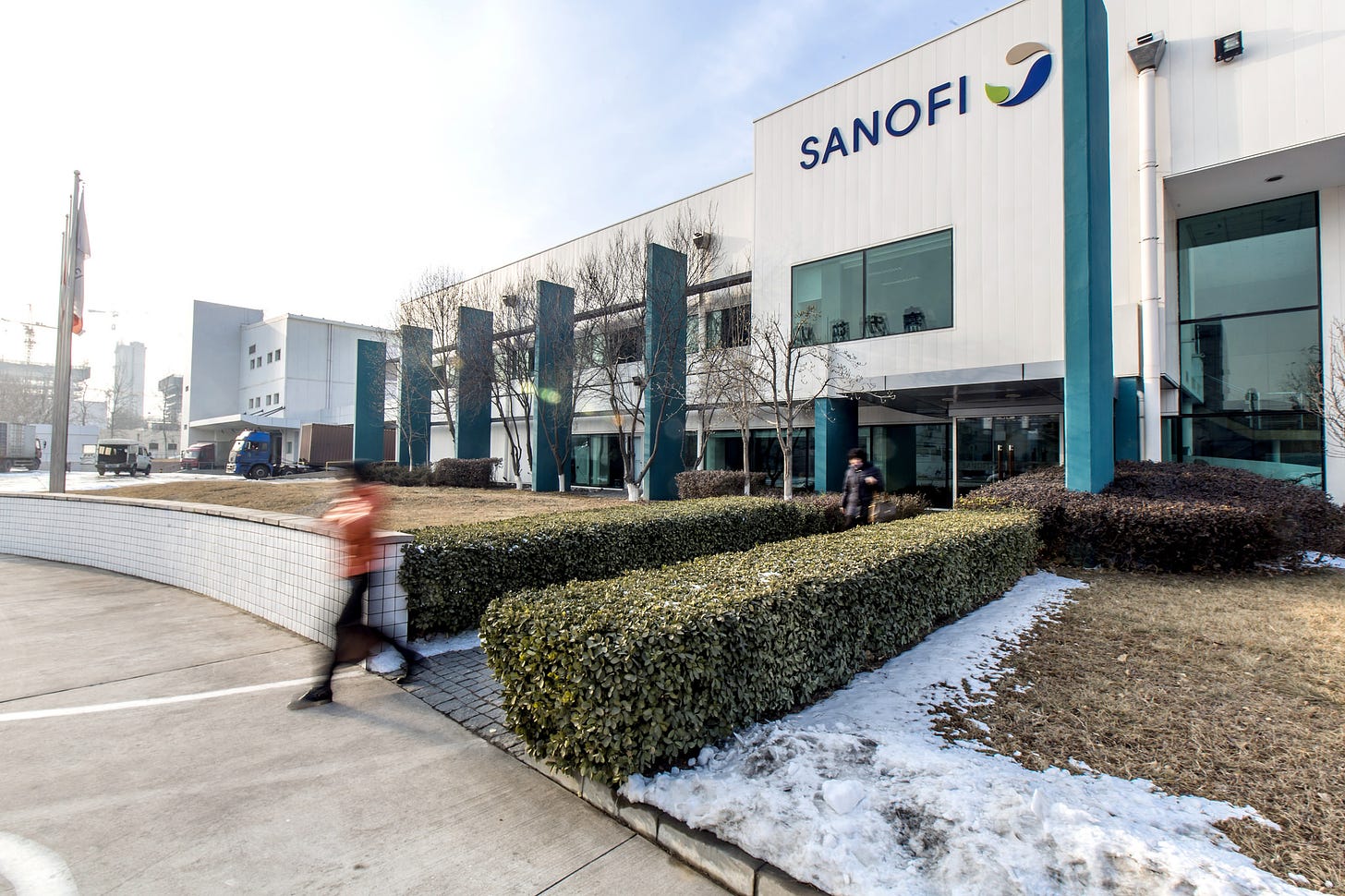Xiaoice Secures ¥1B Funding; China's Ethical AI Commitment; Sanofi-Insilico Medicine's $1.2B Deal; Speech-to-Gesture
Weekly China AI News from Nov.7 to Nov.20
Dear readers, in this week’s newsletter, we will discuss how Chinese AI startup Xiaoice can raise RMB1 billion as VC funding is drying up. China’s foreign ministry spokesperson spoke of the country’s latest commitment to regulate AI weapons. Insilico Medicine inked a (potentially gigantic) deal with pharma giant Sanofi. Plus, NetEase’s new research can enable speech-to-gesture generations!
Weekly News Roundup
Xiaoice Bags 1 Billion Funding to Democratize AI Employees
What’s new: Xiaoice (小冰), a Microsoft AI spinoff specializing in chatbots and digital avatars, has raised RMB1 billion (~$140 million) at a valuation of $2 billion amid funding winter.
About Xiaoice: In 2014, Xiaoice was first unveiled by Microsoft Bing’s Chinese team as an AI chatbot. Unlike Siri or Cortana, Xiaoice brandished emotional intelligence and companionship reminiscent of the human-like chatbot in the movie Her.
In 2020, Microsoft spun off Xiaoice as a separate company. In 2021, Xiaoice raised more than RMB500 million at a valuation of $1 billion. As of 2022, Xiaoice has covered 660 million online users and 1 billion third-party smart devices.
Next step: Xiaoice will use the funding to develop its Avatar Framework, a technology engine that creates virtual employees with human-like facial expressions, voices, and motions. Xiaoice now owns 300,000 “I being employees” for customer services, virtual TV hosts, digital coaches, and more.
China Reiterates Commitment to Ethical Governance of AI
What's new: Last week, China submitted a position paper on strengthening the ethical governance of AI to the 2022 Meeting of the High Contracting Parties to the Convention on Certain Conventional Weapons.
Said Foreign Ministry Spokesperson Mao Ning:
The position paper stresses China’s commitment to building a community with a shared future for humanity in the domain of AI and efforts to advocate a people-centered approach and the principle of AI for good, ensure that AI is safe, reliable, controllable, and capable of better empowering global sustainable development and enhancing the common well-being of all humanity.
Why it matters: A New Scientist story highlighted the increasing difficulty of regulating AI-powered weapons, or Lethal autonomous weapons systems (LAWS) as many refer to, following the Russa-Ukraine War. A Wired story also revealed RRussia'skiller drones with AI capabilities. It was unclear whether such weapons had been deployed in the war. Other countries like Turkey, South Korea, Israel, the U.S., China, and Australia have either deployed or invested in LAWS.
Round two: It was not the first time China made a stance to seek global rules on AI weapons. As Mao stated:
In December last year, the Chinese side submitted a position paper on regulating military applications of AI to the review conference of the UN Convention on Certain Conventional Weapons, offering China’s insight and solution for challenging issues in AI governance.
China's advocating more regulation of AI weapons coincided with the G20, where Chinese President Xi Jinping reiterated the call for a peace talk and an end to the Ukraine war.
Sanofi, Insilico Medicine Ink Up to $1.2 Billion Deal for AI Drug Development
WWhat'snew: Pharm giant Sanofi tapped Hong Kong-based AI drug discovery unicorn Insilico Medicine to advance drug development candidates for up to six new targets.
$1.2 billion: Insilico Medicine will receive up to $21.5 for the upfront and target nomination fees from Sanofi. A total of up to $1.2 billion will be rewarded to Insilico Medicine if crucial research, development, and sales milestones are met.
Why Insilico Medicine: Insilico Machine aims to transform the traditional drug discovery process that might take one decade and cost billions of dollars with end-to-end AI technologies. Founded in 2014, the company has raised $401.3 million in 10 funding rounds.
Insilico Machine made headlines last year as the company's AI system identified a novel drug target and novel compound to treat a pulmonary disease within 18 months and a $2.6 million budget.
Market prospect: According to Research and Markets, the global AI drug discovery market is expected to reach $2994.52 million in 2026 at a CAGR of 30.2%.
Trending Research
Speech-to-Gesture: NetEase Games AI Lab proposed an AI system that can automatically generate high-quality gestures with given speech audio and text transcriptions. The GestureMaster system is based on ChoreoMaster, which can generate dance motion given a piece of music. NetEase said their model ranked first in the upper-body study and second in the full-body study. Read the paper GestureMaster: Graph-based Speech-driven Gesture Generation for more.
Multi-modal Dialogue Dataset: Peking University and Microsoft introduced the MMDialog dataset, which comprises a curated set of 1.08 million real-world dialogues with 1.53 million unique images across 4,184 topics. MMDialog is the largest multi-modal conversation dataset by the number of dialogues by 88x. Second, it contains massive topics to generalize the open-domain. Read the paper MMDialog: A Large-scale Multi-turn Dialogue Dataset Towards Multi-modal Open-domain Conversation.
Faster AlphaFold2 Training by 38.67%: A Baidu research team presents a Parallel Evoformer and Branch Parallelism approach for efficient AlphaFold2 training. The novel strategy improves AlphaFold2 training speed by up to 38.67 percent without sacrificing performance. Read the story from SyncedReview Baidu’s Parallel Evoformer and Branch Parallelism Strategy Accelerates AlphaFold2 Training by 38.67%.






